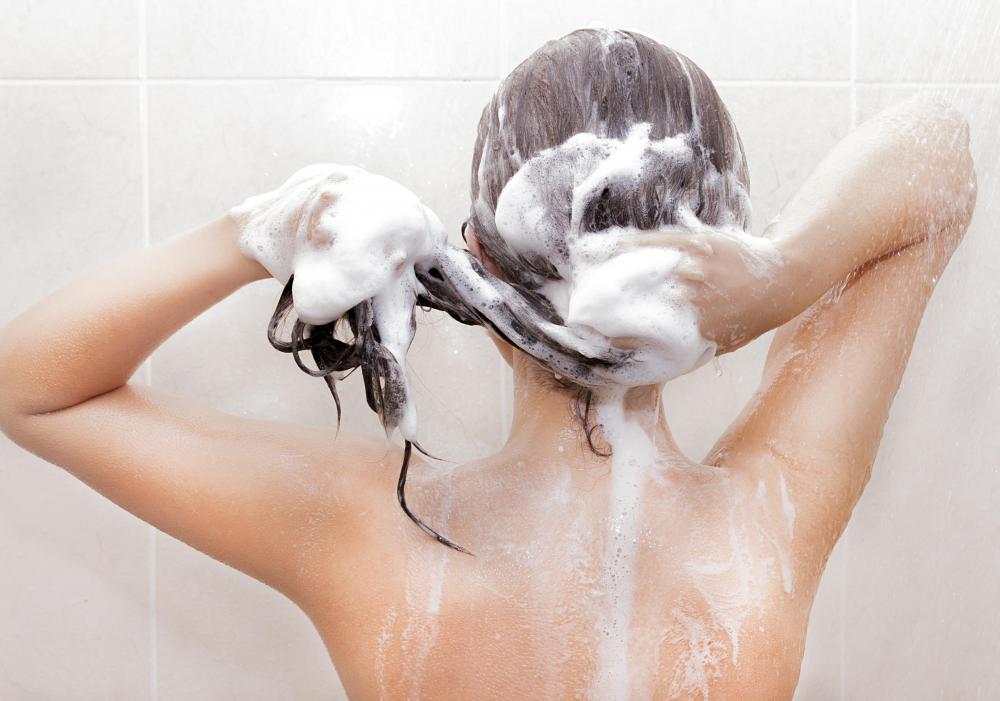At WiseGEEK, we're committed to delivering accurate, trustworthy information. Our expert-authored content is rigorously fact-checked and sourced from credible authorities. Discover how we uphold the highest standards in providing you with reliable knowledge.
What Is Co-Washing?
Co-washing is the practice of washing the hair with conditioner instead of shampoo. The majority of shampoos and hair cleansers contain sulfates, which can dry the hair out and cause scalp irritation. Using only a conditioner to cleanse the hair will help keep moisture locked in and can be especially beneficial to those who suffer from dry, dehydrated, or dull hair. Since co-washing can cause buildup in the hair over time, it is best to use a shampoo at least once a month while practicing this method of cleansing.
Harsh shampoos can strip the hair of all moisture, especially when used daily. After shampooing, hair is often left dried out, tangled, and unmanageable. To avoid this problem, some individuals turn to washing the hair with only conditioner. Hair conditioners contain emollients and moisturizers that hydrate the hair and scalp and prevent tangles. The natural oils of the scalp also help keep hair healthy and shiny, and washing with conditioner instead of shampoo will help the hair retain these oils.

The method of co-washing is popular among those with curly, thick, or long hair. It is especially common practice for African-American women with curly or frizzy hair to co-wash to keep dryness at bay. While some individuals co-wash frequently instead of shampooing, many only do so a couple of times a week or in between shampoos. Those with extremely dry hair or scalps often co-wash three or four times weekly.

The best conditioners to use for co-washing are usually silicone-free, as silicone can leave a residue on the hair and may cause the scalp and hair to become gummy. Even so, a silicone-based conditioner can still be used for a conditioner wash as long as a clarifying shampoo is used occasionally to remove excessive buildup. Watery or thin conditioners also tend to work better for co-washing because they rinse away more easily with water and leave a cleaner feeling.

Although co-washing can be a good way to keep moisture locked into the hair, it can also cause heaviness and buildup over a period of time. The hair can also end up looking greasy or weighed down if buildup is not removed. Most who co-wash will shampoo the hair and scalp at least once monthly to prevent this from happening. Only using conditioner also does not actually cleanse the hair, so it is best to alternate washings with an actual cleanser or shampoo.
AS FEATURED ON:
AS FEATURED ON:













Discuss this Article
Post your comments